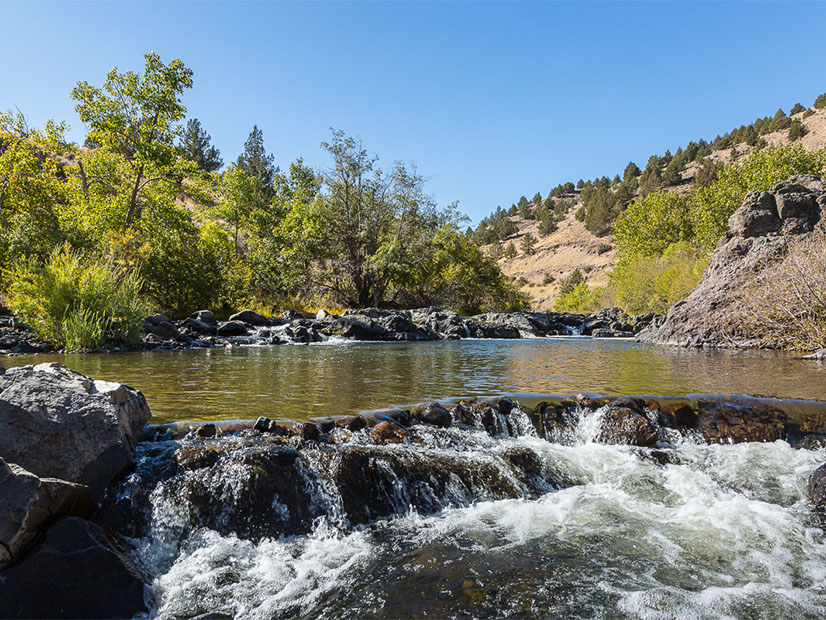
FERC on Thursday issued PacifiCorp preliminary permits to study the feasibility of developing two pumped hydro storage projects in Southern Oregon, strategically located near a major intertie with California.
The preliminary permits (P-15239, P-15246) are for the proposed Winter Ridge and Crooked Creek pumped storage projects. Both would be built in Lake County, Ore., within the Fremont-Winema National Forest. Each of the closed-loop systems would generate an estimated 1,460 GWh per year.
The purpose of a preliminary permit is to allow study of a project’s potential impacts before a license application is submitted. The permit gives the permit holder first priority in applying for a license for the project.
But the preliminary permit doesn’t allow its holder to access or disturb lands. Additional authorizations would be needed for those activities, FERC said in its orders issuing the permits.
PacifiCorp applied for the preliminary permits in October.
The proposed Crooked Creek project would include a 4,200-foot long, 100-foot-high embankment dam and a 4,300-foot-long, 130-foot-high dam to create upper and lower reservoirs of 52 and 50 acres, respectively.
The proposed Winter Ridge project would include a 4,700-foot-long, 120-foot-high embankment dam, and a 5,320-foot-long, 80-foot-high dam, creating upper and lower reservoirs with a surface area of 85 and 44 acres, respectively.
PacifiCorp is also looking at an alternative for Winter Ridge in which a 4,100-foot-long, 170-foot-high dam would create a 50-acre lower reservoir.
The Winter Ridge and Crooked Creek projects would both divert water from the Chewaucan River via an underground pipeline for initial and maintenance fills.
Each project would use a concrete powerhouse/pump station with three 167-MW generating/pumping units and a 500-kV transmission line to connect to substations that provide access to the Pacific AC Intertie, a major link between the Pacific Northwest and California. Fast-ramping hydroelectric resources are becoming especially valuable for firming up the variable renewable resources that are coming to dominate the grid in California and elsewhere in the West.
WaterWatch, a conservation group focused on Oregon’s rivers and streams, filed comments opposing the projects. The group said the projects aren’t feasible because of the arid environment, severe water shortages and critical ecological resources associated with the Chewaucan River and Lake Abert, a nearby salt lake that receives much of its water from the river. The lake is a major stopover for migratory shore birds.
“WaterWatch asserts that prior efforts to site a pumped storage project in this area failed and that the Commission should reject the permit rather than cause the utility, regulatory agencies and interested parties to expend time and resources on this proposal,” FERC said in both orders.
However, FERC doesn’t make public interest findings until a license application is submitted for a project, and so WaterWatch’s arguments are “premature,” the commission said.
Other groups expressing concerns about the proposed projects include the Desert Association, Oregon Wild and the Great Old Broads for Wilderness.
Some commenters who are worried about the projects’ impacts on the Chewaucan River noted that the river is being considered for a federal Wild and Scenic River designation. FERC said the Wild and Scenic Rivers Act doesn’t prohibit issuing a preliminary permit for a project, and the Chewaucan River is not yet a designated river.
The Oregon Water Resources Department said PacifiCorp should be required to monitor water flow near the point of diversion for each project for a minimum of three years before applying for a license.
FERC said it would consider impacts on water use during licensing proceedings.
“Accordingly, it might be prudent for the permittee to consider and study during the term of the permit whether there is enough water physically available to make the proposed project feasible,” the commission said.



